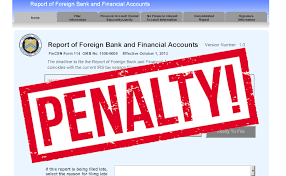At an April 13, 2021, hearing of the Senate Finance Committee, Sen. Rob Portman (R-OH) and IRS Commissioner Charles Rettig discussed issues relating to the reporting of cryptocurrency transactions.
Commissioner Rettig specifically highlighted new cryptocurrency disclosure obligations on the Form 1040 tax return and has it listed on the IRS' "Dirty Dozen" list.
Preparing and undergoing a tax examination for Crypto can be exhausting, but hopefully, this post will help you prepare to survive an IRS Crypto Currency Audit.
What Information Will I Need For A Cryptocurrency Audit?
During an audit, it’s likely that the IRS will ask you for the following information:
- All blockchain addresses and wallet IDs that you own/control
- All crypto exchanges and wallets you are using, as well as your user IDs, email addresses, and IP addresses related to those accounts.
You’ll also need the following information on each one of your cryptocurrency transactions.
- The date and time each unit of your cryptocurrency was acquired
- The fair market value of each cryptocurrency at the time of acquisition
- The date and time of each time you disposed of your cryptocurrency
- The fair market value of each cryptocurrency at the time of disposal, and what you’ve received in exchange for each cryptocurrency
- The accounting method that you used to calculate your capital gains at each disposal event
What Exchanges Hold Your Cryptocurrency?
Do you have all of your cryptocurrency in a cold storage wallet, or do you maintain various hot wallets on different exchanges? This is very important, and it may impact the ability of the Internal Revenue Service to track your information or not. It is important to note that the IRS has been working to develop various processes and procedures to effectively unravel the anonymity you may have believed you had, as a result of prior transactions. This includes arrests and John Doe Summonses.
Review the Crypto Audit IDR
When you receive a notice of examination from the IRS, they will also receive an IDR which is an Information Document Request. Some IDRs are relatively short and may only be a page or two, while others can be upwards of 30 pages for more complex tax matters. Therefore, when you are under a crypto audit, the first step always is to evaluate the IDR to determine what the IRS is asking for, so that you can make notes as to what you’ll need to respond and prepare a strategy of how to respond.
How Far Back Does A Cryptocurrency Audit Go?
Audits include all tax returns that are filed in the last three years for overstatement of deductions or six years for substantial understatement of income. (Though they typically don’t go back further than six years).
If no return was filed, or a fraudulent return is filed, there is no limit to how far back the IRS can audit.
Frequently Asked Questions
To summarize what we’ve discussed we have provided a few frequently asked questions about cryptocurrency tax audits.
- Can you get audited for cryptocurrency?
Yes. If the IRS has reason to believe that you are underreporting your crypto taxes, it is likely that they will initiate an audit.
- How long does a crypto tax audit typically take?
The maximum length of an audit is generally 3 years. However, the length of a crypto tax audit can vary heavily depending on the specifics of your situation.
- How do you avoid a cryptocurrency tax audit?
To minimize your chances of being audited, be sure to accurately report your cryptocurrency capital gains and income across all your wallets and exchanges.
- Which Crypto Exchanges Do Not Report To The IRS?
To legally operate in the United States, all major cryptocurrency exchanges are required to abide by relevant IRS reporting requirements.
- More FAQ's regarding cryptocurrency?
Go to the IRS' webpage.
Unreported Cryptocurrency?
About 1-2 years ago, the IRS stated it would not be developing a “stand-alone” cryptocurrency voluntary disclosure program, but no such program currently exists. If you are out of cryptocurrency tax and reporting compliance, we can also advise you of the benefits of a domestic or offshore Voluntary Disclosure, which we handle on a regular basis.
Hybrid Offshore Accounts (Did You Report on Forms 114 & 8938)
The offshore and international cryptocurrency holding rules and regulations are currently in flux. If all of your cryptocurrency is in an account overseas that contains nothing but cryptocurrency, then you have a position to take that a cryptocurrency account does not have to be reported.
Conversely, if you have your cryptocurrency is in a foreign hybrid account that contains both cryptocurrency and currency, then the IRS takes the position that that type of account is reportable and so you will want to review your records to determine the status and whether you are in compliance or not.
Should I Seek The Help of A Tax Attorney Like TaxAid?
Yes, many investors choose to seek the help of a tax attorney that can advocate their tax positions before the IRS.
- If you choose to hire a tax professional, be sure that the tax attorney who you work with has a strong background in cryptocurrency, like Marini & Associates, PA - TaxAid.com.
- We have experience in representing taxpayers with cryptocurrency tax issues.
- We know how to use various cryptocurrency tax software.
- The tax attorneys at Marini & Associates, PA (TaxAid.com), will meet with the IRS on your behalf, so you don't have to. and
- If you are out of cryptocurrency tax and reporting compliance, we can also advise you of the benefits of a domestic or offshore Voluntary Disclosure, which we handle on a regular basis.
Have a Virtual Currency Tax Problem?
Value Your Freedom?
Contact the Tax Lawyers at
Marini & Associates, P.A.
Sources
CoinLedger
Lexology















